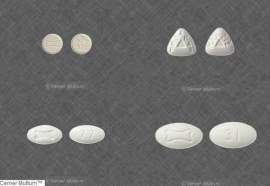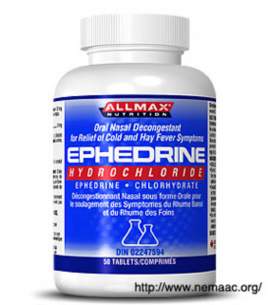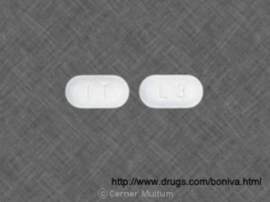
Promethazine HCL Lawsuit

A Brief Guide to Filing a Promethazine HCL Lawsuit:
What is Promethazine HCL?
Marketed as Phenergan, Promethazine HCL is an antihistamine used to treat the following symptoms and/or conditions:
• Promethazine HCL is effective in combatting: hay fever; stuffy nose; watery, itchy eyes; mild skin reactions; allergic reaction to plasma or blood; certain forms of hives; motion sickness; severe allergic reactions
Ina addition to treating the above, Promethazine HCL is often administered in the following circumstances:
• Promethazine HCL may be administered as a sedation during child birth or before or after surgery
• Promethazine HCL may be administered to prevent and control nausea and vomiting following surgery
• Promethazine HCL may be used in conjunction with Demerol or other pain medications
• Promethazine HCL may be administered to relieve anxiety
Although effective in several arenas, Promethazine HCL may yield and assortment of side effects:
Promethazine HCL Side Effects:
The most common Promethazine HCL side effects include the following:
• Drowsiness is a common Promethazine HCL side effect
• Changes in blood pressure
• Skin reactions are regarded as common Promethazine HCL side effects
• Respiratory problems
• Blood cell changes
If these Promethazine HCL side effects are particularly bothersome or persistent you should call your doctor to discuss discontinuation.
Because of these Promethazine HCL side effects, the medication should not be used by patients with poor lung function (i.e. chronic obstructive lung disease or sleep apnea). Promethazine HCL side effects may take other forms; if you experience any adverse reactions while taking Promethazine HCL, please contact your doctor or seek treatment.
Promethazine HCL and the FDA:
In April of 2006, the United States Food and Drug Administration issued a warning notifying healthcare professionals and the general public that Promethazine HCL should not be administered to children under the age of two. Application in children younger than two poses significant Promethazine HCL side effects, including breathing problems. This FDA warning pertains to all forms of Promethazine HCL including: suppositories, injectables, tablets and syrups.
In addition to this warning, the USFDA has received reports of respiratory problems (some fatal) as a result of Promethazine HCL use in children under the age of two years old. To reflect these potentially fatal Promethazine HCL side effects, the labeling on all of the drug’s packaging has been updated.
Promethazine HCL:
The prescription medication Promethazine HCL has many uses, largely related to nausea, morning sickness, and sedative properties. In 2009, a major Promethazine HCL lawsuit exposed the manufacturing company to litigation. This Promethazine HCL lawsuit accused the drug for severe side effects related to tissue necrosis.
Though the manufacturer had stated in the instructions that this could result in a condition known as tissue necrosis, the information was not aptly emphasized. The Promethazine HCL lawsuit was filed by a woman who was administered the medication through a butterfly needle. As a result, a tissue necrosis occurred. These Promethazine HCL side effects ultimately led to the amputation of the plaintiff's arm.
In opposition to Promethazine HCL lawsuit, parent company Wyeth argued that it was not liable because the FDA had approved the warning placed on the medication. Therefore, the Promethazine HCL lawsuit was not valid because the risks of misuse were clearly stated. Initially, a state court awarded the plaintiff a $6 million Promethazine HCL settlement.
Wyeth challenged the results of this Promethazine HCL lawsuit by filing an appeal. Eventually this Promethazine HCL lawsuit made its way to the Supreme Court where it was upheld on the basis of underreporting—in the Promethazine HCL lawsuit the court ruled that intensifying the warning was warranted. This Promethazine HCL lawsuit affirmed the company's responsibility in emphasizing the risks associated with the drug.
In 2009, the FDA responded to these events by requiring an update to the warnings concerning Promethazine HCL side effects. Sufficient warning is now provided to protect Wyeth from Promethazine HCL lawsuits. However, it is important to understand that those seeking a Promethazine HCL lawsuit may still file if administration of the drug results in tissue necrosis.
The basis of these Promethazine HCL lawsuits may also charge a nurse or hospital with negligence. A Promethazine HCL lawsuit could then be sought on malpractice grounds.
Sources:
1.http://www.fda.gov/NewsEvents/Newsroom/PressAnnouncements/ucm182498.html
2.http://www.fda.gov/Drugs/DrugSafety/PostmarketDrugSafetyInformationforPatientsandProviders/ucm109364.html
3.http://www.fda.gov/Drugs/DrugSafety/PostmarketDrugSafetyInformationforPatientsandProviders
/DrugSafetyInformationforHeathcareProfessionals/ucm182169.html
4. United States National Library of Medicine "Modafinil" retrieved from:
http://www.ncbi.nlm.nih.gov/pubmedhealth/PMH0000196/



















